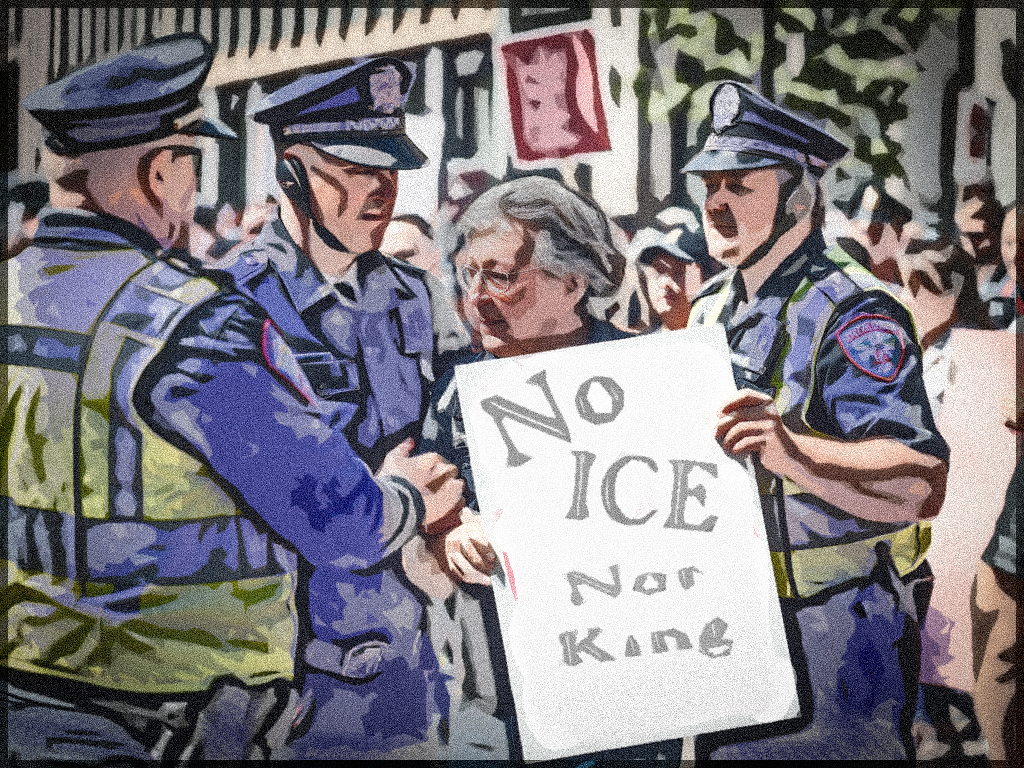What can be done to relieve these fears and concerns – by government, by leadership, by institutions, by individuals?





what can we do?
government level solutions
Economic Policy Interventions:
- Job retraining and reskilling programs for displaced workers
- Infrastructure investment creating good-paying jobs in affected communities
- Small business support and entrepreneurship programs
- Universal healthcare or healthcare cost controls to reduce economic anxiety
- Housing affordability initiatives and zoning reform
- Progressive taxation paired with middle-class tax relief
Institutional Reforms:
- Campaign finance reform to reduce perception of elite capture
- Gerrymandering reform to ensure fair representation
- Transparency initiatives to rebuild trust in government
- Civic education funding in schools and communities
- Rural broadband expansion to reduce digital divides
Social Safety Net:
- Portable benefits that move with workers between jobs
- Childcare support to help working families
- Mental health services expansion
- Substance abuse treatment programs
Leadership approaches
Political Leadership:
- Cross-partisan collaboration on shared concerns (infrastructure, veterans, etc.)
- Town halls and listening tours in diverse communities
- Honest communication about complex challenges without oversimplification
- Rejection of divisive rhetoric and zero-sum framing
- Celebration of shared American values and common ground
Messaging Strategies:
- Economic populism that addresses legitimate grievances
- Inclusive nationalism that celebrates diversity within shared identity
- Future-oriented vision rather than nostalgia-based appeals
- Concrete policy solutions rather than abstract promises
INSTITUTIONAL approaches
Educational Institutions:
- Civic education emphasizing democratic norms and institutions
- Critical thinking skills and media literacy training
- Diverse curriculum that includes multiple perspectives
- Community college partnerships with local employers
- Adult education programs for lifelong learning
Religious and Community Organizations:
- Interfaith dialogue and cooperation
- Community service projects that bring diverse groups together
- Conflict resolution training and mediation services
- Social support networks for isolated individuals
Media and Technology:
- Algorithm transparency and reform of recommendation systems
- Fact-checking initiatives and journalistic standards
- Local journalism support to counter national polarization
- Digital literacy programs to help people navigate information
Business and Economic Institutions:
- Corporate responsibility in plant closures and relocations
- Stakeholder capitalism considering community impacts
- Skills-based hiring and apprenticeship programs
- Supply chain localization where economically viable
INDIVIDUAL-Level Actions

Thorough preparation—medical waivers, property checklists, legal contacts—minimizes harm and maximizes impact…….Organized, pre-notified actions are safer and more effective than spur-of-the-moment protests.
Attorney Jeffry Finer speaks to Spokane Raging Grannies workshop: CLICK LINK Navigating Civil Disobedience
- Cross-cutting social connections – relationships that span political/demographic divides
- Active listening and empathy-building exercises
- Volunteer work in diverse community settings
- Travel and cultural exchange when possible
- Continuous learning about different perspectives
Civic Engagement:
- Local political participation (city councils, school boards)
- Community organizing around shared local concerns
- Voter registration and turnout efforts
- Peaceful protest and democratic participation
- Running for office at local levels
Social Bridging:
- Workplace collaboration across demographic lines
- Neighborhood activities that bring people together
- Sports and recreational leagues with diverse participation
- Parent-teacher organizations and school involvement
- Faith-based or secular service organizations
Addressing Specific Demographic Concerns
For Economic Anxiety:
- Targeted job training in growing industries
- Entrepreneurship support in struggling communities
- Cooperative business models to share ownership
- Regional economic development strategies
For Cultural Change Fears:
- Cultural exchange programs that build understanding
- Shared civic rituals and community celebrations
- English language support paired with cultural appreciation
- Intergenerational dialogue programs
For LGBTQ+ Community:
- Anti-discrimination enforcement and legal protections
- Safe space creation in schools and workplaces
- Healthcare access including mental health support
- Visibility and representation in leadership roles
Long-Term Systemic changes
Democratic Reforms:
- Proportional representation or ranked-choice voting
- Public campaign financing options
- Redistricting reform through independent commissions
- Voting rights protection and access expansion
Economic Structure:
- Worker ownership and profit-sharing models
- Universal basic services (healthcare, education, transit)
- Green New Deal type programs creating new industries
- Antitrust enforcement to reduce corporate concentration
Measuring Success
Key Indicators:
- Social trust surveys and measurements
- Economic mobility statistics
- Political participation rates across demographics
- Hate crime and discrimination incident tracking
- Mental health and community wellbeing metrics
Critical Success Factors:
- Authenticity: Solutions must address real grievances, not just perceptions
- Inclusivity: All groups must feel they have a stake in democratic society
- Patience: Cultural and institutional change takes time
- Consistency: Sustained effort across multiple election cycles
- Local focus: National problems often require local solutions
- Bipartisan support: Lasting change needs broad political coalition
how can we do it?
The most effective approach likely combines immediate economic relief with long-term institutional reform and sustained cultural bridge-building. Success requires coordination across all levels – from individual relationship-building to major policy reforms – and recognition that democratic resilience is an ongoing project, not a one-time fix.
If you would like to participate in community building:
Fighting Fear Articles
1. Why Are People So Afraid That They Choose Tyranny Over Democracy
2. Why Blacks Will Resist the Loss of Democracy
3. What Needs To Be Done to Relieve Fear?
4. Join Fighting Fear and Volunteer
This page provides examples of how you can be empowered. Feel free to look around 4comculture.com. Please also do research outside of the site.
